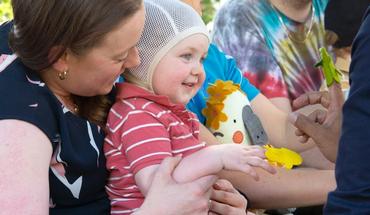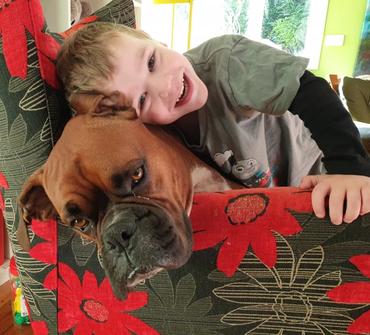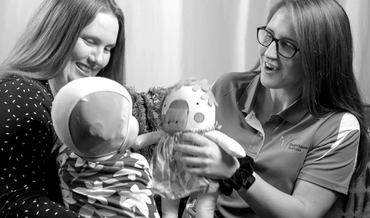First Diagnosis? Here are some tips on what to do next.
Receiving the news that your child is deaf or hard of hearing usually comes as a shock, especially since 90 percent of these children are born to hearing parents. For many such parents, their child is the first person they’ve met who is deaf or hard of hearing. This can make it hard to put the news into perspective. Here are some important steps to take now you’ve received your child’s diagnosis.
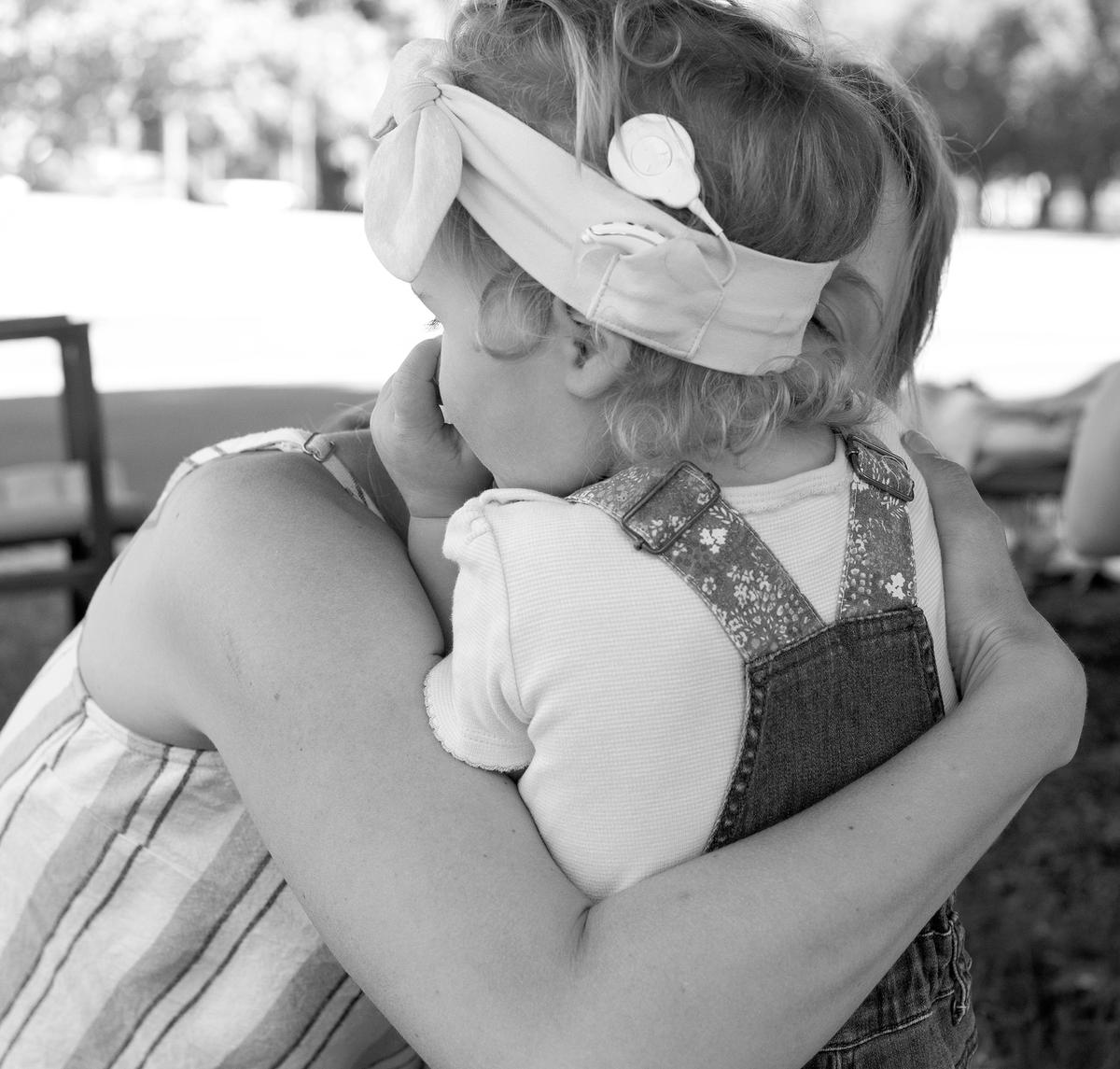
Enjoy your baby
Receiving a diagnosis doesn’t change the fact you have a precious new child in your family who needs your loving care.
The nurturing and stimulation you provide now play a vital part in your baby’s cognitive, physical, social and emotional development.
This doesn’t have to be anything complicated. Simply meeting their basic needs for food and comfort, paying them plenty of loving attention, and ensuring they have opportunities to play and form relationships within your family are the most important.
You can do all these things even while you’re making a decision about communication. For example, read to your baby while pointing out pictures, play simple games, and create an environment that is rich with opportunities for sensory engagement (such as providing age-appropriate toys and activities).
Communicate with your baby
Babies begin communicating from the moment they’re born and know when others are communicating with them. They cry, for example, when they need attention. They recognise familiar faces and voices. From birth, it’s important to lay the groundwork for your baby’s language development.
Regardless of the type of communication you ultimately choose for your family, it’s vital to start communicating with your infant immediately and often
This can include simple things like making eye contact, smiling, using gestures, and talking and singing to your baby throughout the day.
Build your knowledge
Arming yourself with knowledge is a great way to feel more in control – and to help your infant and family! However, the amount of information out there often seems overwhelming. That’s why we’ve created this website specifically for parents like you, who’ve recently received their child’s diagnosis.
On this website, you’ll find the essential information parents of a child who’s deaf or hard of hearing told us they’d like to know. You’ll also find plenty of links to other helpful resources should you wish to dive deeper into a specific topic.
Take care of yourself
It’s normal to experience a range of emotions at this time, including anger, sadness, guilt, fear and uncertainty
Thinking about your baby’s future may feel frightening and overwhelming.
For most parents, these early feelings drive positive actions. You will learn to cope with this new reality.
To help you take the best care of your baby, it’s important to take care of yourself. Try to eat well and get some physical activity. Good nutrition and exercise have been shown to positively impact both physical and mental health. You could go for a family walk each day. Sleep is also important, so get as much as you can.
If loved ones offer help, such as meals, cleaning or babysitting, accept graciously and know people feel good being able to do something to assist you.
Get support
Remember, you’re not alone and support is available. Many parents have been in your situation before and watched their deaf or hard of hearing child grow to become a young person who participates actively in family, school, work, hobbies and community life.
You and your partner may react differently to the diagnosis, and it’s important to talk (and listen) to each other about how you feel. If you have other children in your family, be mindful of their needs and feelings too. Talking to trusted family and friends can also help.
Many parents find it helpful to speak to someone who has been through a similar situation
Deaf Children Australia’s Parent Mentor Program is designed specifically to give parents who’ve recently received a diagnosis the chance to connect with someone who’s walked a similar journey. Learn more our Parent Mentor Program here.
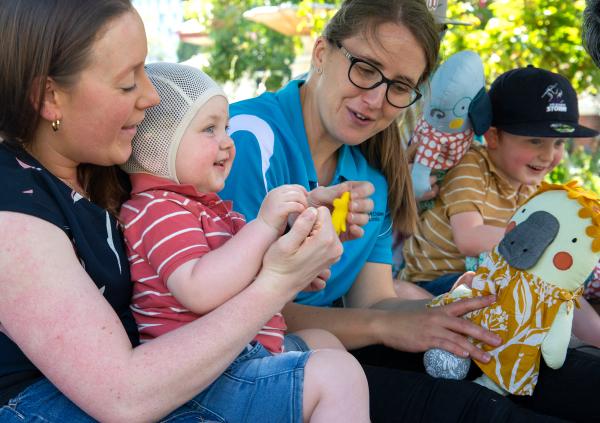
We also have a support network that allows families and caregivers with children who are deaf or hard of hearing to connect. Learn more about our POD Support Network (POD) here.
If you continue finding it difficult to come to terms with your child’s diagnosis, seek support from a professional such as a counsellor or psychologist. Your GP can help you find one.
Like raising any child, raising a child who is deaf or hard of hearing will have ups and downs.
Don’t be afraid to seek support at any time throughout your parenting journey.

